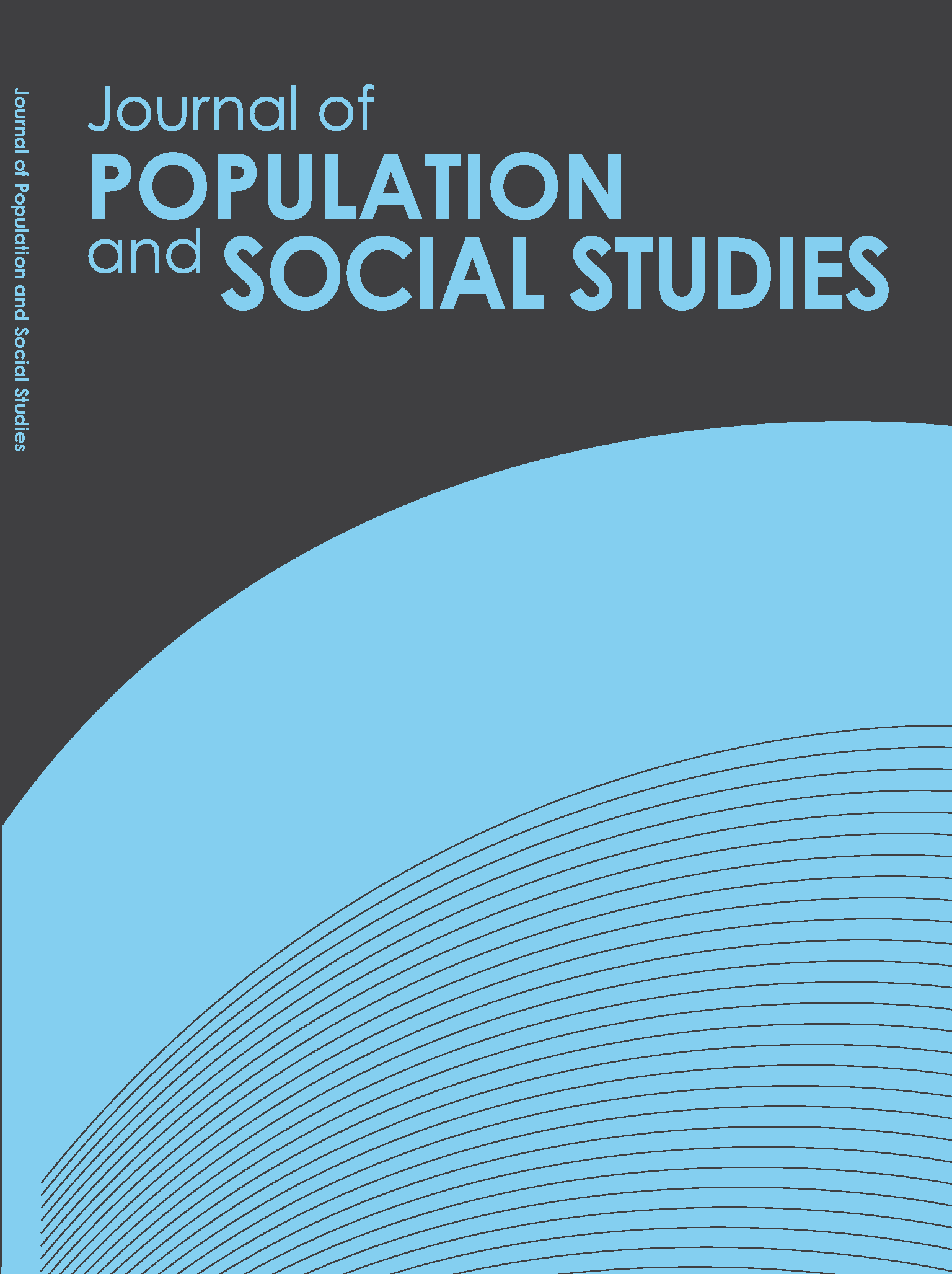The Effect of Unwanted Pregnancy on Prenatal Care Practice in Thailand
Main Article Content
Abstract
The aim of the research is to study the relationship of unwanted pregnancy with prenatal care. The study used the secondary data, Maternal and Child Health Survey 2003: MCH, which was conducted by the Institute for
Population and Social Research (IPSR), Mahidol University, Thailand. The results indicate that 30 percent of 1,061 pregnancies were unplanned of, which 18 percent were mistimed and 12 percent were unwanted pregnancies. Studying the relationship of unwanted pregnancy with prenatal care indicates that unwanted pregnancies have no
relationship with prenatal care visits. The important factors that affect prenatal care visits are parity and education. But unwanted pregnancies have significant relationships with both initiated time of prenatal care visit and adequate visit. Women with unwanted pregnancies, especial women with three parities or more and women with a low education level are less likely to begin care early and less likely to meet the required number of prenatal care visits compared to women with a wanted pregnancy.
Population and Social Research (IPSR), Mahidol University, Thailand. The results indicate that 30 percent of 1,061 pregnancies were unplanned of, which 18 percent were mistimed and 12 percent were unwanted pregnancies. Studying the relationship of unwanted pregnancy with prenatal care indicates that unwanted pregnancies have no
relationship with prenatal care visits. The important factors that affect prenatal care visits are parity and education. But unwanted pregnancies have significant relationships with both initiated time of prenatal care visit and adequate visit. Women with unwanted pregnancies, especial women with three parities or more and women with a low education level are less likely to begin care early and less likely to meet the required number of prenatal care visits compared to women with a wanted pregnancy.
Article Details
How to Cite
Masmalai, A., Thongthai, V., Yang, X., & Richter, K. (2010). The Effect of Unwanted Pregnancy on Prenatal Care Practice in Thailand. Journal of Population and Social Studies [JPSS], 19(1), 123–137. retrieved from https://so03.tci-thaijo.org/index.php/jpss/article/view/84689
Section
Research Articles


